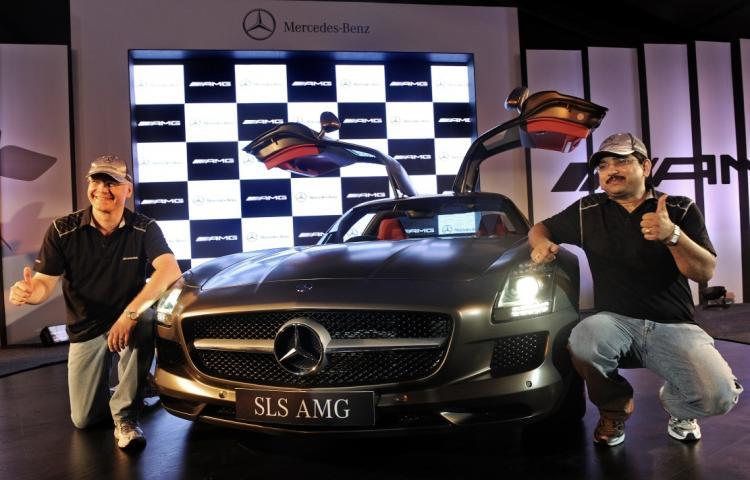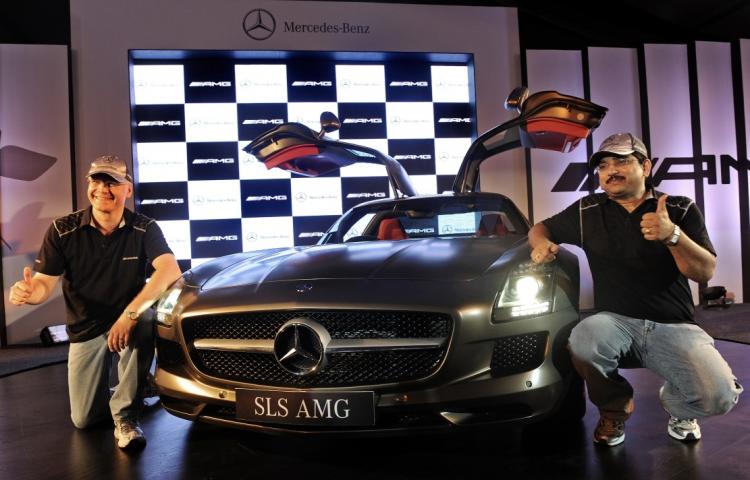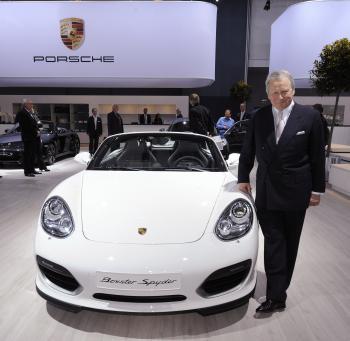MUNICH—The German auto industry is recovering at an astounding rate, as the three luxury carmakers—Audi, BMW AG, and Mercedes-Benz—are booking solid gains and increasing their forecasts after the first half of 2010.
“The automobile market, in some cases, is recovering much faster than expected,” said Ian Robertson, the BMW’s head of sales and marketing in a statement. “We aim to continue this upward trend in the second half of the year,” he added.
BMW reported a 12 percent sales increase in the first half compared to last year, Mercedes-Benz had a record June in sales, and Audi reported an impressive 19 percent sales increase in the first half compared to last year and is planning to have the best year ever by selling more than 1 million cars.
“Last month, Mercedes-Benz recorded the best month of June in the history of the company, new figures have revealed. The firm surpassed expectations as sales increased by 13 per cent worldwide,” said an official press release from Mercedes-Benz.
All three auto giants are increasing their forecasts, something unthinkable half a year ago, as the auto industry was deeply entrenched in a global economic crisis.
“It’s really the other side of the 2009 coin, when everyone was ringing the death bells,” said Sascha Heiden, who is a senior analyst at IHS Global Insight in Frankfurt. “BMW and Mercedes field relatively new models with their 5-Series and E-class, so that may help the German companies attract more buyers.”
“For the full year, the company expects sales volumes to rise by around 10 percent to more than 1.4 million units. … Based on this much improved outlook, the BMW Group expects the full-year profit before tax to rise more sharply than previously forecast,” reported an official press release from BMW AG.
The three main factors have played a role in heightened car sales.
Booming orders from China, the United States, and emerging markets and weak euro and the improved quality of the latest models also increased demand.
“German luxury carmakers are benefiting from their product portfolio and their regional positioning especially in the surging North American and Chinese markets,” said Marc-Rene Tonn, an analyst at M.M. Warburg in Hamburg.
Unable to Meet Demand
As the euro slid to the $1.2 range, all of a sudden the German luxury cars became 20 percent cheaper than what they were a year ago. The car orders both out of United States, China, and emerging market countries have come in unexpectedly in high numbers, leaving the German carmakers shorthanded, unable to produce to meet the increased demand. BMW, for example, has reported that the new 5-Series is already sold out and one would have to wait a three to four months before having it delivered.
As a result of excessive orders, Mercedez-Benz, Audi, and BMW are adding thousands of temporary workers to their factories in Germany and are also cutting their summer factory breaks to a minimum.
Daimler AG, the parent company of Mercedez-Benz, has hired 1,800 temporary workers and BMW has added 5,000 staff to their plants to speed up the production cycle. Audi is planning to keep its production plants working throughout August and bypass its annual three week summer break.
“German premium manufacturers have really worked to improve the quality of their cars,” said Robert Heberger, who is an analyst at Merck Finck & Co. in Munich. “Daimler’s new E-class is of a much better make than its predecessor. BMW benefits from a positive product cycle. The 5-Series is brand new and such state-of-the-art models are always in demand.”
The result of great sales and increased forecasts of the luxury carmakers is reflected on the German stock market as well, where BMW is up 33 percent and Daimler gained 16 percent on the Frankfurt exchange.



